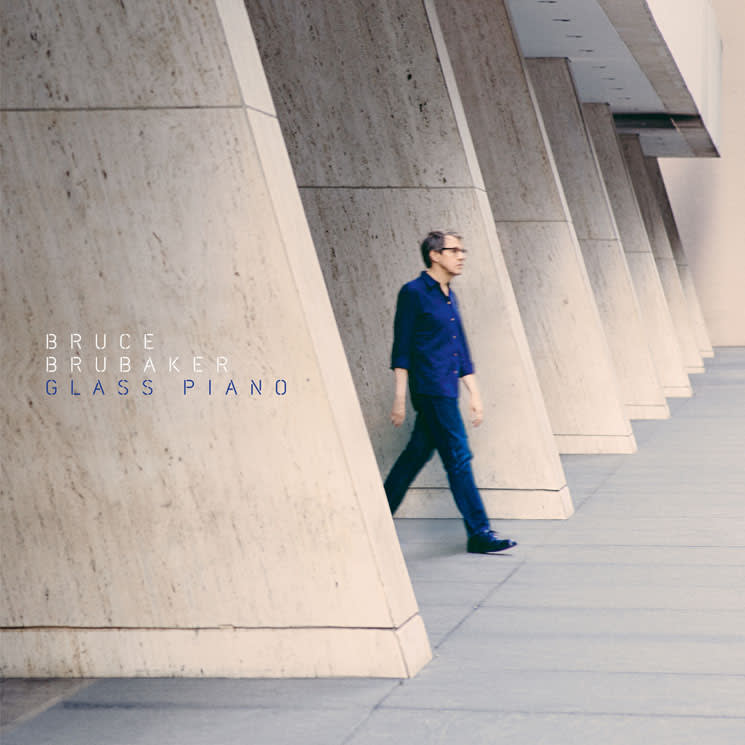Juilliard alum Bruce Brubaker has built a reputation as one of America's finest concert pianists, having premiered works by Meredith Monk, Nico Muhly, John Cage and Philip Glass and chaired the piano department at New England Conservatory since 2005. His latest project sees him reinterpreting a collection of piano pieces by Glass.
The meat of Glass Piano is taken from Glass's famed 1989 album Solo Piano, namely the five sections of "Metamorphosis," the collaboration with poet Allen Ginsberg that became "Wichita Vortex Sutra" and the lengthy "Mad Rush." These are further enhanced by "Evening Song" from Satyagraha, "Opening" from Glassworks, and "Knee Play 4" from the opera Einstein on the Beach. All of it is channelled through Brubaker's keen vision, drawing all the emotional nuance possible from the endless cascading arpeggios and ostinatos.
If you happen to miss a melody or phrase, there is no need to worry — it will come around again. Glass Piano is marked by repeating, circular rhythms that draw your consciousness in, allowing the impressions of the minimal compositions to dig deep in one's mind. Recorded intimately at the Theater and Auditorium of Poitiers, Brubaker and Glass discussed these reworks intensely, so the results are as close to perfection as humanly possible.
(InFiné Music)The meat of Glass Piano is taken from Glass's famed 1989 album Solo Piano, namely the five sections of "Metamorphosis," the collaboration with poet Allen Ginsberg that became "Wichita Vortex Sutra" and the lengthy "Mad Rush." These are further enhanced by "Evening Song" from Satyagraha, "Opening" from Glassworks, and "Knee Play 4" from the opera Einstein on the Beach. All of it is channelled through Brubaker's keen vision, drawing all the emotional nuance possible from the endless cascading arpeggios and ostinatos.
If you happen to miss a melody or phrase, there is no need to worry — it will come around again. Glass Piano is marked by repeating, circular rhythms that draw your consciousness in, allowing the impressions of the minimal compositions to dig deep in one's mind. Recorded intimately at the Theater and Auditorium of Poitiers, Brubaker and Glass discussed these reworks intensely, so the results are as close to perfection as humanly possible.
